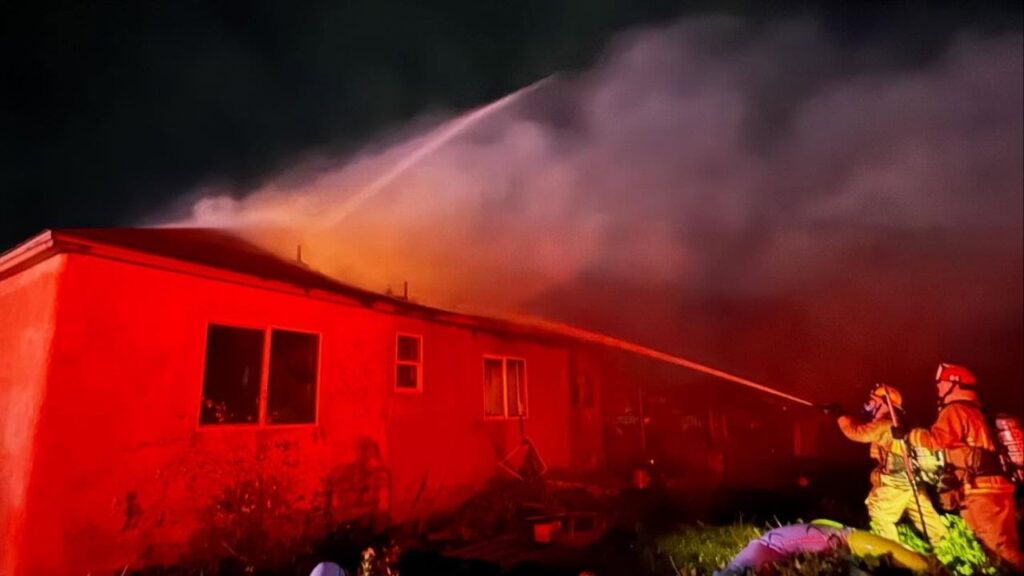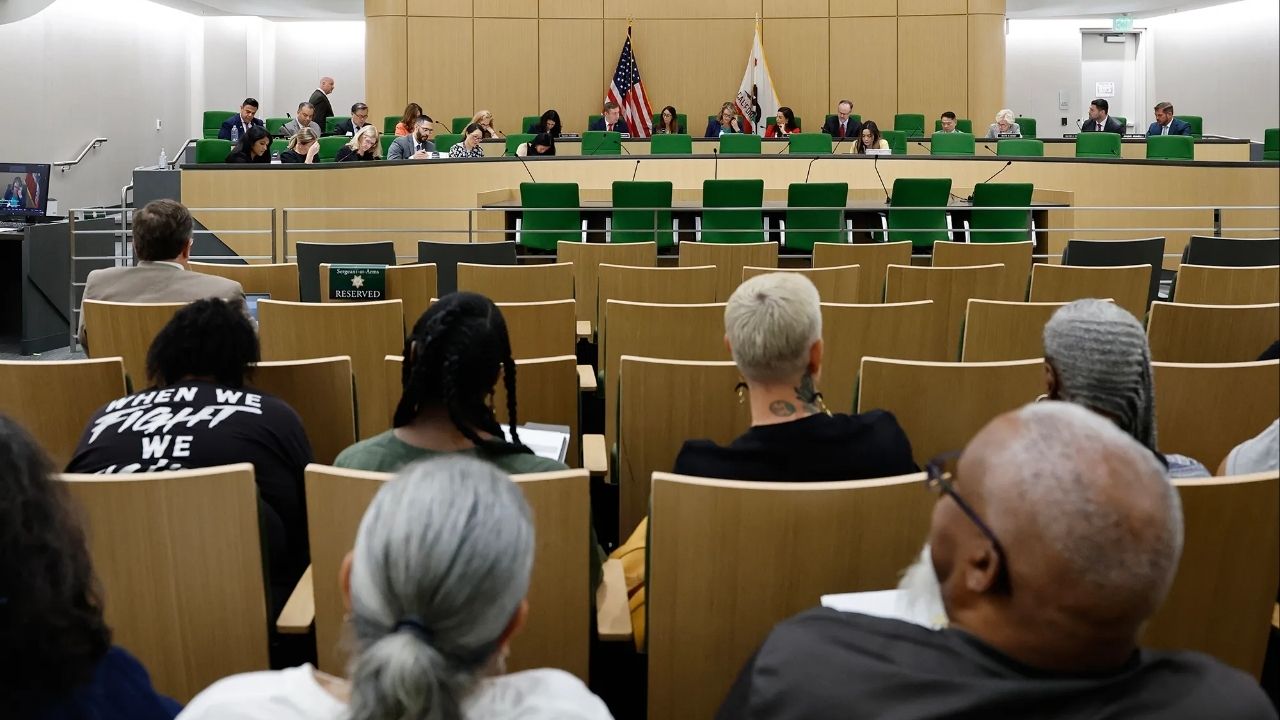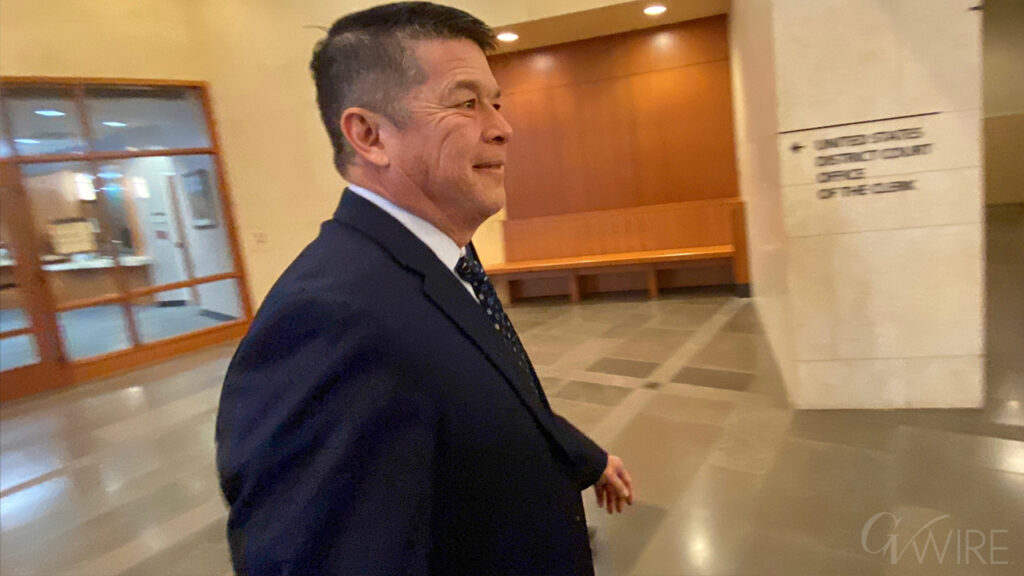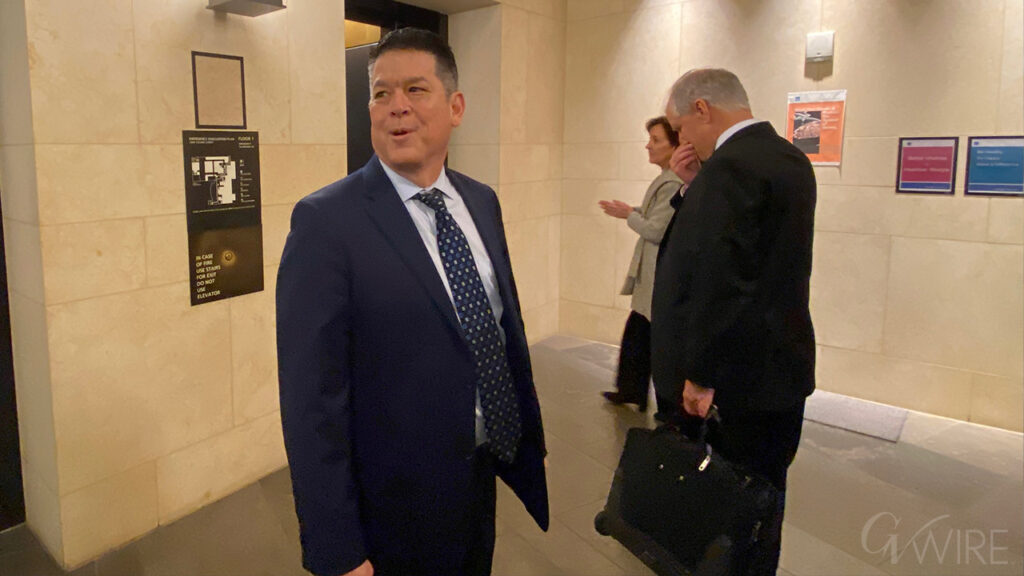People listen during a hearing of the suspense file in the Assembly Appropriations Committee at the Capitol Annex Swing Space in Sacramento on Aug. 29, 2025. Photo by Fred Greaves for CalMatters

- A proposal to speed California’s high-speed rail died in suspense file Friday, facing opposition from utilities, local governments and lawmakers.
- Budget concerns, Trump administration funding disputes, and a $12 billion deficit shaped legislative cuts, killing bills on health care and technology.
- Lawmakers advanced public campaign financing, reparations oversight, and remote meeting flexibility, while critics warned of bureaucracy, delays, and reduced public access.
Share
|
Getting your Trinity Audio player ready...
|
By Yue Stella Yu and Jeanne Kuang, CalMatters
This story was originally published by CalMatters. Sign up for their newsletters.

Yue Stella Yu

Jeanne Kuang
CalMatters
A legislative proposal aiming to speed up California’s high-speed rail construction met its fate Friday, spelling trouble for the already costly and long-delayed project.
Senate Bill 445, authored by Sen. Scott Wiener of San Francisco, aimed to streamline permitting and right-of-way acquisitions for the project, easing restrictions that supporters say significantly slow construction. The proposal, backed by the California High-Speed Rail Authority, followed an Inspector General report that found those negotiations are causing “significant schedule delays.”
But faced with strong opposition from local governments and utilities, the measure was heavily amended, first gutted after leaving the Senate, then significantly changed multiple times as it was rushed through three Assembly committee hearings in one week.
On Friday, it died in a procedure known as the “suspense file,” where lawmakers rapidly shelve legislation deemed too costly — and also dispense with controversial or politically risky bills in the process — without much explanation.
“It was still a major work in progress,” Assembly Appropriations Chair Buffy Wicks, an Oakland Democrat, said of Wiener’s measure.
Wiener called the decision “unfortunate,” but pledged in a statement to come back with similar legislation next year “to address the broken permitting system that has contributed to delays and cost overruns.”
“Californians overwhelmingly agree our state must have a modern, statewide rail system,” he said. “It’s essential to reduce traffic congestion, tackle our climate goals, and sustainably grow our economy.”
Friday’s hearing marked the second culling of legislative proposals this season, when lawmakers considered en masse measures with a price tag of $50,000 or more in the Senate and $150,000 or more in the Assembly. The measures that survived Friday’s votes will be considered in the next two weeks by both chambers.
Budget uncertainties continue to loom. A projected $12 billion budget deficit in June forced Gov. Gavin Newsom and legislative leaders to limit care for undocumented immigrants and borrow from other state reserves. California has also tussled with President Donald Trump in court over federal dollars he wants to withhold from the state, from education funding to disaster aid.
About 27% of the measures in both chambers were rejected Friday: 70 bills in the Assembly and 117 bills in the Senate.
Senate Appropriations Chair Anna Caballero, a Merced Democrat, blamed this year’s decisions on the Trump administration’s tariff back-and-forths and moves to withhold funding from health care, higher education and more in California.

“But for those actions – tariffs, not helping with some of the disasters that we’ve faced early – we would be in a much better fiscal position,” she said. “Our biggest concern is the budget — the budget, with what the federal government’s going to do to us, that we haven’t been able to calculate yet.”
Caballero’s committee killed some Assembly bills to expand health care coverage and amended other legislation to exempt Medi-Cal, which faced cuts earlier this year, from new requirements. That included Assembly Bill 432, which requires health plans to cover care for menopause symptoms but was amended to exclude Medi-Cal. The committee also delayed until next year AB 1405, a bill requiring the state to audit its use of artificial intelligence technology, as it considered a raft of AI-related legislation.
Lawmakers also rejected AB 938, which would have allowed people to clear their records of violent crimes that they committed because they were victims of trafficking or domestic violence; efforts by Democrats to reduce criminal sentences this year have stalled as voters signal they’re turning tougher on crime.
In the Assembly, lawmakers advanced a measure that would let voters decide to allow state and local political campaigns to tap into public funds — to the delight of good government advocates who have for years sought to keep private money out of politics. Public campaign financing has been banned in California since 1988, but supporters argue public financing would empower small donors and energize more qualified candidates.
If approved by the full Legislature, public campaign financing would appear on the November 2026 ballot. Wicks called it a “big priority,” arguing wealthy groups are able to spend big on running ads to defeat unfavorable candidates.
“It’s like this kind of wild, wild West where anyone can come in with hundreds of thousands of dollars and drown you,” she said.
Public Transparency on the Chopping Block
Lawmakers on Friday also greenlit several measures that could shield information from the public or make it harder for people to engage their elected representatives in person.
They amended and advanced SB 707, a proposal to allow local officials and various groups to continue attending public meetings remotely, a policy meant to offer flexibility during the COVID-19 pandemic that good government groups say has also made it harder for the public to directly confront their elected representatives.
The legislation would also require bigger cities to offer remote access to the public and to encourage civil engagement. But groups such as the California Special Districts Association have said the requirements are too “onerous” and could expose them to lawsuits.
SB 495, a measure requiring insurers to report more information but exempting it from public disclosure, also survived the culling.
Assembly lawmakers also approved two measures to study and oversee reparations for descendants of formerly enslaved people, despite opposition from some reparations advocates who have lamented that the tactics are meant to delay real compensation.
SB 437, would give the California State University up to $6 million to research the methodology to verify someone’s descendant status. SB 518 would create a new agency within the state Department of Justice to oversee reparations.
Author Sen. Akilah Weber Pierson, said they would implement recommendations from the state’s reparations task force. Wicks called them “critical.”
But Chris Lodgson, an advocate with the Coalition for a Just and Equitable California, told a hearing in July that the measures will only guarantee “delay, bureaucracy and confusion.”
Lodgson told CalMatters Friday the state should already be issuing financial compensation to descendants of slaves. “Start cutting checks,” he said. “We have to directly confront the economic condition of our people.”
—
This article was originally published on CalMatters and was republished under the Creative Commons Attribution-NonCommercial-NoDerivatives license.
RELATED TOPICS:
Categories

Fresno County Abandoned House Burns in Late-Night Fire


















